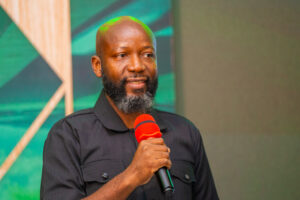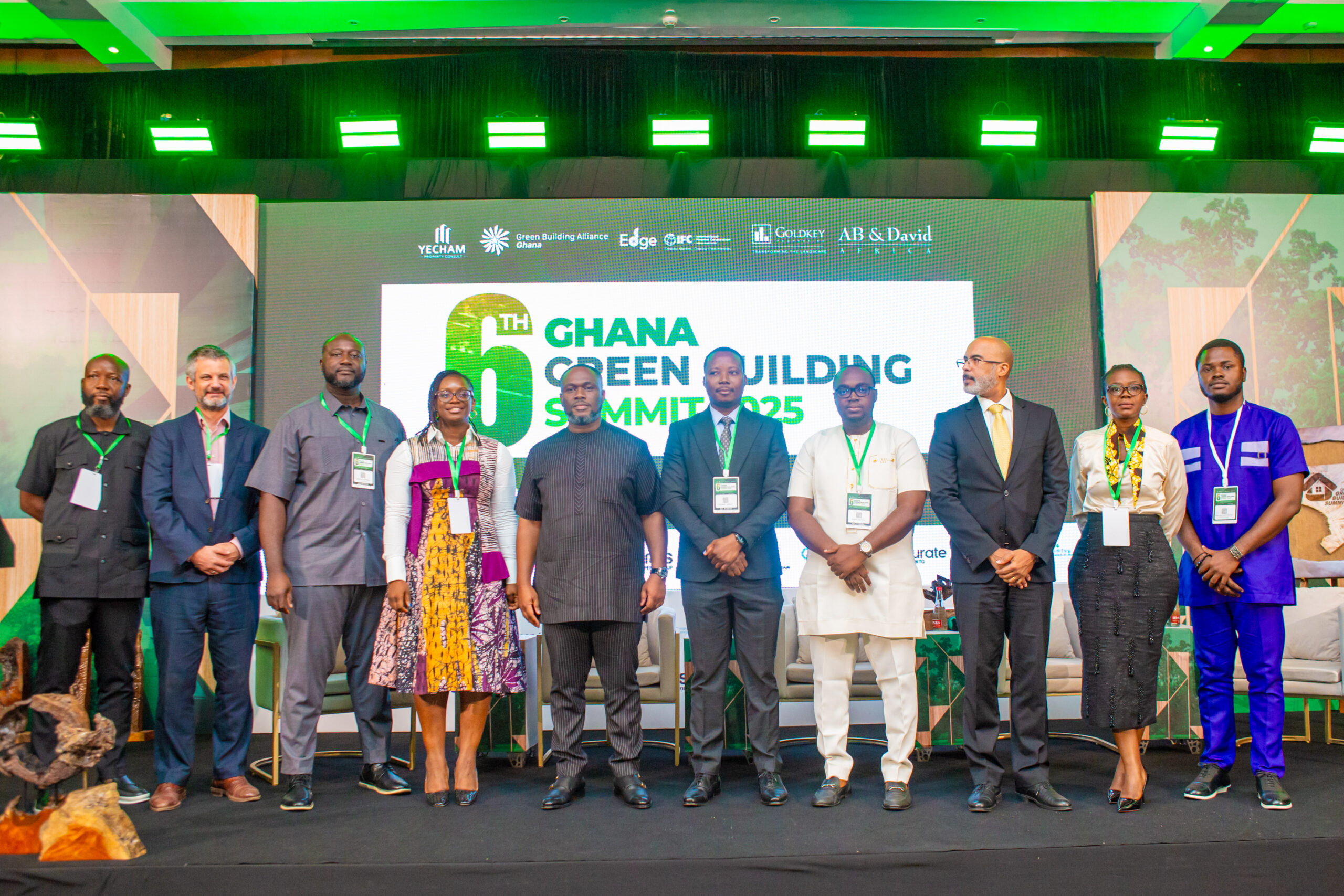adverts
The 6th edition of the Ghana Green Building Summit was held in Accra with resounding success, uniting over 300 stakeholders from across government, development institutions, academia, the private sector, and civil society.
This year’s theme, “Reimagining Buildings and Cities for Economic and Social Prosperity”, served as a powerful rallying call to place sustainability at the heart of Ghana’s built environment—and to make it accessible to all.
Convened by Cyril Nii Ayitey Tetteh, the summit underscored that green buildings are not exclusive to the elite. “Sustainability is about continuity,” Tetteh said. “It happens when we embed it into business, adopt ESG-aligned processes and practise sustainable banking.”
adverts

Delivering the keynote address, Minister for Works, Housing and Water Resources, Hon. Kenneth Gilbert Adjei, reiterated the government’s commitment to integrating green practices into national housing strategies. He cited the District Housing Programme as a notable initiative aimed at delivering eco-friendly homes using local materials in rural and peri-urban communities.
“Green buildings must be affordable,” the minister declared. “But let’s remember, what’s affordable to one person may not be affordable to another.” He further highlighted the essential role of green finance in unlocking scale and accessibility in Ghana’s housing sector.
The Minister of State for Climate Change and Sustainability, Hon. Issifu Seidu, through a speech delivered by his technical director Cedric Dzelu, warned that climate change is already affecting Ghana’s infrastructure, food security, and urban sustainability. “Over 30 million Ghanaians could be exposed to extreme heat by 2050,” he said, citing World Bank data.
“We must design cities with vision,” he urged. “Cities that breathe. Cities that are included. Cities that endure.”
Representing the International Finance Corporation (IFC), Paul Kwesi Ocran, IFC Green Buildings Lead in Ghana, shared technical insights on how sustainable building doesn’t have to mean expensive construction. “We need to shift our thinking,” Ocran said. “Your home can be green—even with low-tech interventions like reflective roofing or energy-efficient lighting.”
He revealed that such solutions have cut energy and water usage by over 30% in affordable housing projects in Accra and Tamale.
John Sheriff Bawah, Managing Director of State Housing Company Limited, tackled the pressing issue of defining affordability in Ghana’s housing sector. “We throw around numbers like $60,000 or $250,000 and call them affordable,” he noted. “We need clarity and realism.”
One highlight of the event was the recognition of Joel Jojo Osam Mensah, winner of the 3rd IFC EDGE Student Design Competition. His prototype, Nɔte Dan (Earth House), integrated natural ventilation, rammed earth walls, and a passive cooling system to achieve over 50% savings in both energy and water use. In a surprise announcement, Bawah offered him a job on the spot—a gesture enthusiastically endorsed by the sector minister.
IFC’s Yewande Giwa, Senior Operations Officer, acknowledged the contributions of the British and Swiss governments in promoting green finance and building local capacity. “Imagine if every new building met EDGE standards. The climate impact would be tremendous,” she said.
From the legal and policy perspective, Vera Owusu-Osei, Co-Chair of the Green Transition Practice at AB & David Africa, praised the summit’s fusion of innovation, policy, and legal frameworks. “This is what progress looks like when all forces align,” she said.
British High Commission’s Richard Sandall, Development Director, emphasised that green buildings are no longer a choice. “They are a necessity,” he stressed. He called for stakeholders to think systemically—beyond technology—and to focus on the political and commercial frameworks that enable sustainable development.
The Summit featured six thought-provoking panel discussions, spanning key areas like ESG strategy, financing, energy innovation, public space design, and urban planning.
As the event wrapped up, a new coalition of partners emerged—aligned and determined to deliver inclusive, affordable, and sustainable cities, one green home at a time. The resounding takeaway from this year’s summit: sustainability isn’t just the future—it’s the now.


